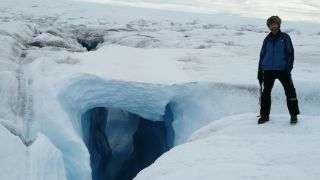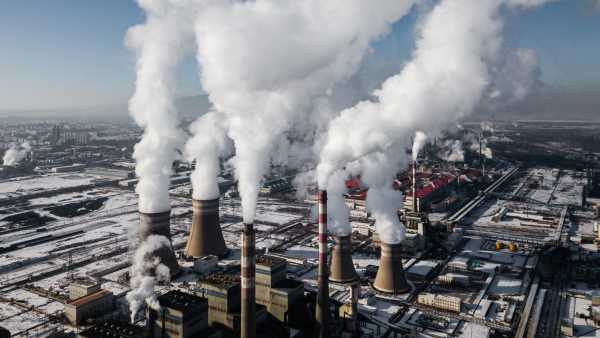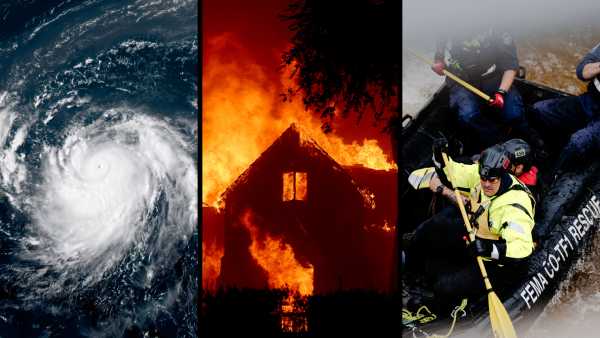
Climate scientist Konrad Steffen stands on the ice in Greenland in 2008.
Konrad Steffen, a world-renowned climate scientist, died at the age of 68 on Saturday (Aug. 8) in an accident in Greenland.
Steffen, the Director of the Swiss Federal Institute for Forest, Snow and Landscape Research, researched climate change for more than 40 years, focusing on its impacts on the Arctic and Antarctic, according to a statement. His decades-long research in Greenland, specifically, confirmed that climate change is causing Greenland’s ice sheet to melt with increasing speed, according to The New York Times.
He died near a research station known as “Swiss Camp” that he had founded in Greenland 30 years ago. Steffen had fallen into an ice crevasse and drowned in the deep water within it, according to the Times. Researchers at the station told the Times that these crevasses were known hazards but high winds and recent snowfall made them hard to see.
Ryan R. Neely III, a climate scientist at the University of Leeds in England, who studied under Steffen, told the Times that crevasses used to be unheard of in that area, but warming had caused stresses on the ice sheet and subsequent cracks. “In the end,” he said, “it looks like climate change actually claimed him as a victim.”
Steffen made a major impact on the field of climate science, and often brought his research on climate change to political leaders and the public, according to The Washington Post.
He returned to the camp, consisting of a lab hut and another hut for communal dining, each spring, according to the Post. Sometimes the camp would collapse, and be rebuilt. Steffen would often construct most of it himself, according to the Post. While there, he would only sleep three to four hours a night and often worked with bare hands in the frigid cold, according to the Post.
Steffen was born in 1952 and earned his doctorate from ETH Zurich in Switzerland in 1984. In 1990, he became a professor of climatology at the University of Colorado in Boulder and served as the director of the university’s Cooperative Institute for Research in Environmental Sciences (CIRES) from 2005 to 2012, before leaving to direct the Swiss Federal Institute for Forest, Snow and Landscape Research. As of 2012, he was also a professor at ETH Zurich and the Swiss Federal Institute of Technology Lausanne, according to the statement.
Related Content
“I take some small comfort knowing he was where he wanted to be, doing what he wanted to be doing,” the current CIRES director Waleed Abdalati, who earned his PhD under Steffen’s mentorship, said in a statement from CIRES.
Steffen “always had a smile and a kind word to say,” according to the statement. “And it seemed, at times, like he could do anything: brief Congress, ford a meltwater river on a snowmachine, mesmerize journalists with tales of his time on the ice.”
Sourse: www.livescience.com





